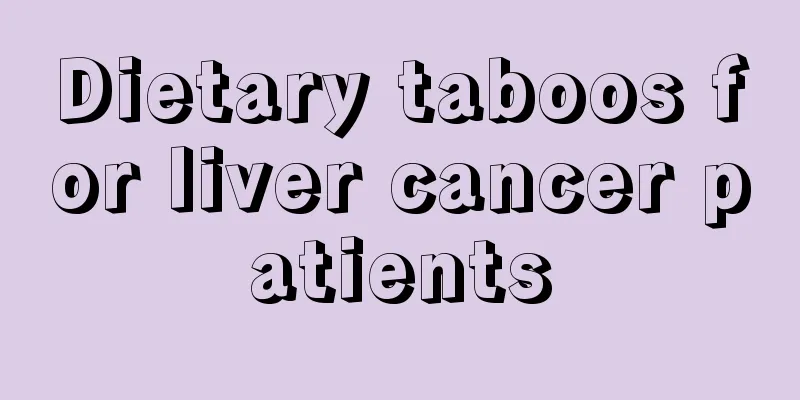Side effects of prostate cancer chemotherapy

|
Chemotherapy is one of the adjuvant treatments for prostate cancer. Common drugs include cyclophosphamide, 5-fluorouracil, doxorubicin, cisplatin, etc. Common chemotherapy toxicity and adverse reactions include the following 7 aspects: 1. Chemotherapy drugs can cause liver damage Chemotherapy for prostate cancer can cause varying degrees of liver damage, causing patients to experience elevated alanine aminotransferase, elevated bilirubin, liver enlargement, liver pain, jaundice, etc. Severe cases can also cause cirrhosis, coagulation disorders, etc. Therefore, liver function should be dynamically monitored during chemotherapy. 2. Renal toxicity The toxic effects and adverse reactions of the urinary system caused by prostate cancer chemotherapy are mainly manifested as proteinuria, oliguria or anuria, hematuria, etc. In order to reduce renal toxicity, patients are advised to drink more water during chemotherapy and given intravenous fluids to keep the urine volume above 2500ml. 3. Cardiotoxicity The cardiotoxicity of prostate cancer can manifest as abnormal electrocardiograms in patients, and in severe cases, heart failure may occur. Therefore, the medication process should be closely monitored, and if abnormalities are found, symptomatic treatment or medication should be discontinued in a timely manner. 4. Lung toxicity The toxic effects and adverse reactions of prostate cancer chemotherapy on the respiratory system are mainly manifested as acute chemical pneumonia and chronic pulmonary fibrosis, and even respiratory failure. 5. Inhibit the bone marrow hematopoietic system Chemotherapy drugs inhibit the bone marrow hematopoietic system, which mainly manifests as a decrease in white blood cells and platelets. Therefore, a blood test should be done before each chemotherapy. When the white blood cell count is lower than 2.5×109/L and the platelet count is lower than 50×109/L, chemotherapy should be stopped and drugs to increase white blood cells should be given. 6. Impact on fertility Some drugs used in prostate cancer chemotherapy can affect fertility and cause teratogenesis, so they should be contraindicated for young patients. 7. Thrombophlebitis When chemotherapy drugs are given by intravenous injection, careless leakage of the drug solution can cause local tissue necrosis and thrombophlebitis. In addition, patients will also experience symptoms such as hair loss and gastrointestinal reactions, which can be treated symptomatically. After chemotherapy is stopped, the symptoms can usually be relieved on their own. |
<<: 10 groups of people who are prone to breast cancer
>>: TCM classification and treatment of ovarian cancer based on syndrome differentiation
Recommend
When you get fat, your legs get fat
The human body is not fat, but every time when yo...
Does ovarian teratoma require surgery?
For all female friends, the ovary is an important...
What will happen if Vietnamese pigs eat it
Vietnam is a relatively small country adjacent to...
What is the method of crystal foreskin?
Nowadays, people's living standards are const...
What exercises can patients with cervical cancer do
What kind of exercises can patients with cervical...
What causes lung cancer
In recent years, lung cancer has become one of th...
How to remove oil stains from clothes
There are always various big and small situations...
What are the early symptoms of skin tumors
In my country, skin tumor is a malignant tumor wi...
Experts explain the causes of colon tumors
Colon cancer is the most common malignant tumor i...
The efficacy of hawthorn slices soaked in water, the benefits of drinking hawthorn slices soaked in water
The effects and functions of drinking dried hawth...
What are the specialties of Sanmenxia?
Maybe many people have not been to Sanmenxia, b...
What are the uses of bronchial asthma drugs
Bronchial asthma can seriously damage your lungs ...
What are the effects of hair growth and blood nourishing capsules
With the development of society, people's lif...
What to do if there are small pits on the face
In life, many people are prone to acne on their f...
Common early symptoms of cervical cancer include the following situations
Early symptoms of cervical cancer are generally n...









